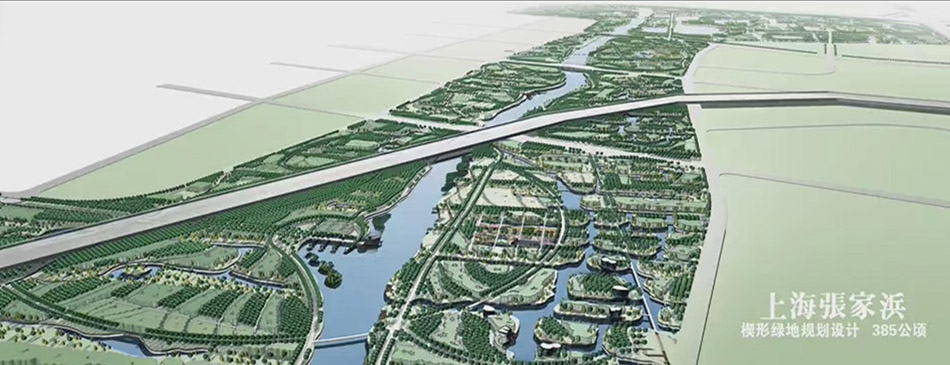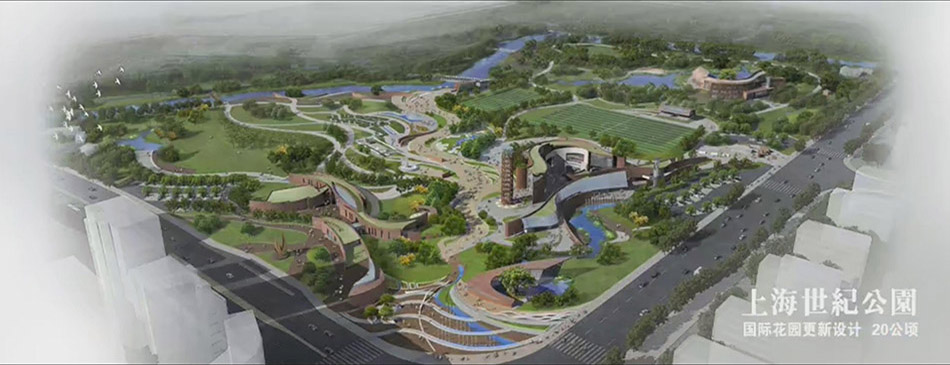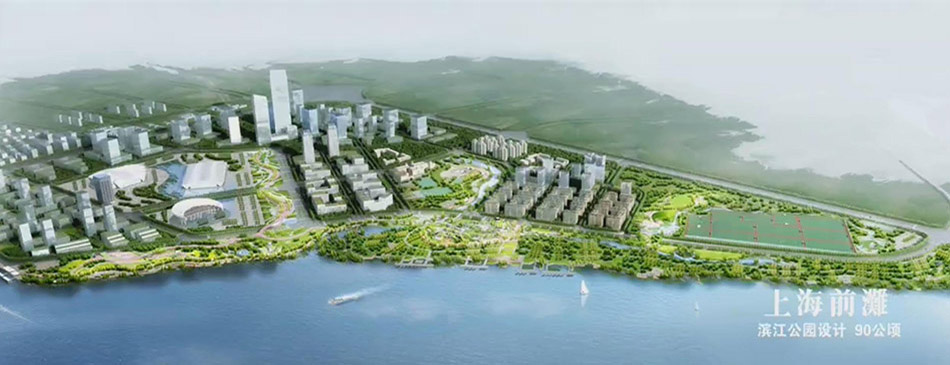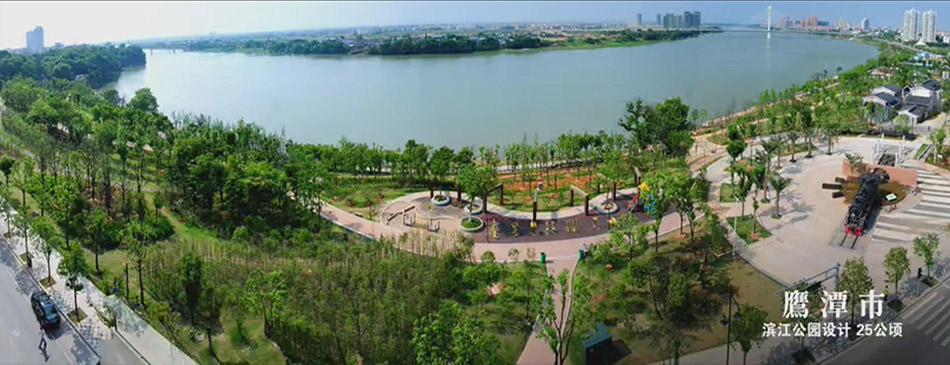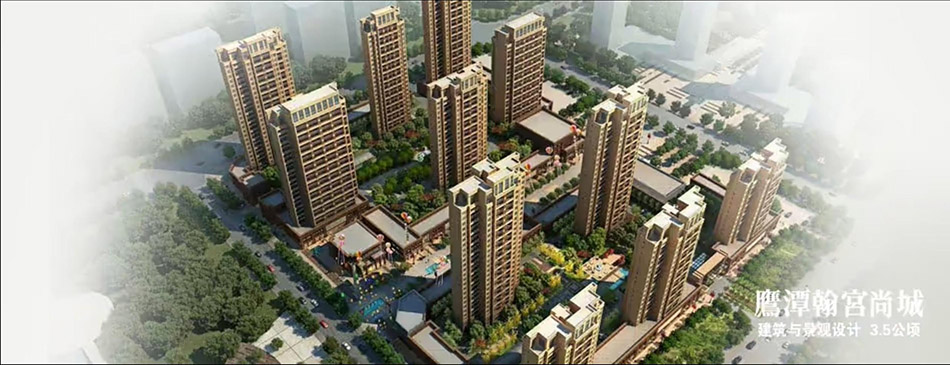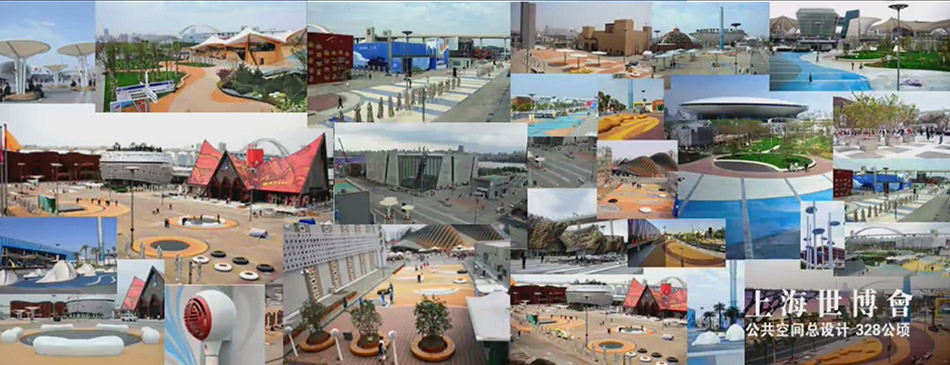|
上海世博上南路之绿色街道
Green Street Program in Expo Shangnan Road in, Shanghai
发表于 2011 02 《景观设计》-《景观设计师》
撰文:林选泉 刘月琴 图片提供:林选泉 翻译:顾海玲
Written by: Lin Xuanquan, Liu Yueqin
Pictures Furnished by: Lin Xuanquan
Translated by: Gu Hailing

作为上海世博会世博轴延伸的世博上南路,其连接着世博会最大的主入口与外环线,是浦东南北交通的大动脉之一。借助世博会契机,上南路必将促进周边服务业功能的提升以及公共活动载体的升级,实现沿路地区功能的转变和跨越式发展。上南路因世博会而更新发展,故“更新传承、活力未来”是其设计的总体构想。
As an extension of the Expo Axis, ShangnanRoad connects the largest main entrance and the outer ring road of Shanghai, and is one of the south-north transportation arteries in Pudong.With the opportunity brought by the Expo 2010 Shanghai, Shangnan Road will certainly bring improvement of function of surrounding service industries and carriers of public activities, and thus achieve functional transformation and development of regions along the road.
Shangnan Road will be renewed to the Expo 2010 Shanghai. So “innovating inheritance and activating future” is taken as the overall design concept.
更新陈旧落后的道路空间与设施,传承世博文化与浦东历史,融入现代开放的休闲活力空间,营造出继浦东世纪大道后又一标志性城市发展辐射轴。
设计师针对上南路现状,对建筑界面、道路街具、街道空间,道路绿化等问题进行深入分析:上南路在总体上缺乏统一性与知名度,休闲空间、商业氛围及使用人群上也都缺乏活力。对上南路需进行全方位综合改造,包括色彩、建筑立面、店面招牌、道路绿化、附属设施、夜景照明以及新技术的应用等。同时贯彻统一与多样结合、重点与一般结合、功能与形态结合、保留与改造结合、建设与管理结合的五大原则。
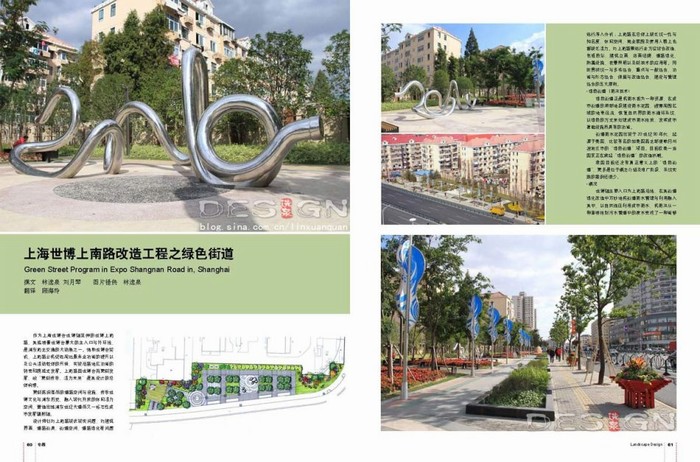
The aim of this project is to replace lagging road spaces and facilities, inherit the culture of Expo and the history of Pudong, incorporate modern and vigorous leisure space, and create another significant urban development axis following the Century Avenue in Pudong.
With the existing problems on Shangnan Road, the further analysis of building interface, street furniture, street space and road greening indicated that there was a lack of integrity and fame, and vitality of leisure space, commercial atmosphere and user groups. Therefore, Shangnan Road comprehensive improvements include color, facades, storefronts, road greening, amenity facilities, nightscape lighting and new technology etc. Meanwhile, five major principles of combining unity and diversity, emphasis and general, function and morphology, retention and renovation, development and management are
implemented.
·绿色街道(雨洪技术)
绿色街道正是将雨水视为一种资源,在城市街道的局部地段建设雨水花园,搜集周围区域的地表径流,恢复自然界的雨水循环系统,以绿色的方式来处理城市雨水排放,发挥城市绿色基础设施所具有的功能。
街道雨水花园出现于20 世纪90 年代,起源于美国,比较有名的如美国西北部俄勒冈州波特兰市的“绿色街道”项目。目前欧美一些国家正在掀起“绿色街道”的改造热潮。
我国目前较少有真正意义上的“绿色街道”,更多是处于概念介绍及推广阶段,系统实践的案例还很少。

Green Street
Green street regards rainwater as a kind of resource. Stormwater garden is often built on local place in urban streets by collecting surface runoff
to restore rainwater circulation system in the nature, treat urban rainwater in a green manner, and make urban infrastructure play proper function.
Storm water garden originated in the U.S.A. in the 1990s, among which the “Green Street” project in Portland, Oregon is well-known.
At present “green street” renovation is becoming popular in some European and American countries. At present the real “green streets” are being introduced and disseminated conceptually rather than practiced systematically in China.

·概况
世博轴主要入口为上南路沿线,在其街道绿化改造中巧妙地将街道雨水管理与利用融入其中,以自然途径利用城市雨水,将雨洪从一种直接排到污水管道中的废水变成了一种能够补充地下水的资源,同时创造了一种具有吸引力的街道景观和城市绿色空间,从而提高了自然生境的活力,并且与上南路沿线的社区、学校、公园及商业区相连接。
Overview
Shangnan Road is at the main entrance to Expo Axis. Management and utilization of rainwater is artfully incorporated into road greening renovation. The stormwater garden takes advantage of urban rainwater naturally, transforms wastewater discharged directly to sewers to a kind of resource that recharges groundwater, meanwhile creates a kind of attractive street landscape and green urban space. Finally it improves natural environment and well connects communities, schools, parks and commercial districts along
Shangnan Road.
·意义
通过该项目的“雨洪技术”,向公众展示了一个集雨水收集、滞留、净化、渗透等功能于一体的生态处理系统。同时,借助栽种多种观赏植物营造出一个自然优美的街道景观,并成为支撑街道景观的重要元素,展示未来城市社区可持续发展的方向。
Significance
An ecological treatment system integrating collection, retention, purification and infiltration of rainwater is demonstrated to the public by “storm water technology” on Shangnan Road. Simultaneously by planting a variety of ornamental plants, a natural and beautiful street view is created, which becomes an important element supporting street landscape and shows the direction of sustainable development of urban communities.

·设计原理
降雨时,雨水沿着道路汇集到道路两侧的种植区,并通过在路侧石设计的入口流入种植区。当种植池内的水深达到植物和土壤吸收水分的容量极限时,多余的雨水将流入第二个种植单元,以此类推;当最后一个种植单元也达到饱和时,多余的雨水将流入到现有的城市雨水排放系统。
通过国外多种模拟实验表明,街道的绿化种植区能处理25 年一遇的暴雨径流量的85%。
Design Principle
When it rains, rainwater gathers and flows into planted area on both sides of the roads through entrances along curbstones. When water depth in the plantation unit reaches the capacity limit for the plants and soil to absorb water, this unit cannot continue to collect rainwater, and the surplus rainwater will flow into the second unit, and so forth. When the last planted unit is saturated, the rest rainwater will flow into urban rainwater drainage system.
·植物设计
植物选择是该生态雨水管理系统的关键要素。该项目设计所选定的植物基本上都是乡土品种,如、灯心草、干屈菜、玉蝉花、旱伞草、黄菖蒲、石菖蒲、香茹草、莎草等,这些品种的养护成本低廉而且非常适应当地的生长环境,能有效地减缓雨水流速并吸附污染物质、大量吸收水分。虽然这些植物都是低矮的常绿
品种,但其不同的色彩和质感营造出了富于变化的景观。
Plant Design
Plant selection is the key in this ecological rainwater system. The chosen plants are generally native species, including Nephrolepis cordifolia (L.)Presl, Juncus effuses, Arrhenatherum elatius (Linn.) Pressl, Buxus megistophylla Lévl., Herb of Nutgrass Galingale. These species are cheap to maintain and very adaptive to local environment. They can effectively reduce flow velocity of rain- water and absorb pollutants and a lot of water. Although all these plants are low, evergreen species, they can make the landscape variable with their different colors and textures.

与传统街道的对比
|
|
“雨洪花园”街道 |
传统型街道 |
|
雨水水质处理 |
过滤 |
无过滤 |
|
雨水排放形式 |
分流 |
直入管网 |
|
雨水滞留时间 |
短 |
长 |
|
断面形式 |
低于路面 |
高于路面 |
|
种植形式 |
自然式 |
规则式 |
|
植物选择 |
观赏草、花 |
整形灌木为主 |
|
景观空间感受 |
疏朗、通透 |
密实 |
Comparison between Green Street on Shangnan Road and Traditional Street
|
|
Green Street
|
Traditional Street |
|
Rainwater quality treatment |
Filtration |
No filtration |
|
Rainwater discharge |
Diverge |
Flow into pipe network directly |
|
Rainwater retention time |
Short |
Long |
|
Section |
Lower than pavement |
Higher than pavement |
|
Plant form |
Natural |
Regular |
|
Plant selection |
Ornamental grass and flowers |
Mainly shaped bushes |
|
Landscape experience |
Loose and penetrating |
Dense and compact |
相关的绿色设计
该项目中还特别设立了“体验单元”,以展示太阳能运用、传递LED 光源互动体验等。此外,还积极应用了新技术、新材料,如再生木、透水砖、LED 照明、超级植草地坪等。该项目的雨水管理方式不仅建设成本低廉,而且美化了社区环境,提高了社区环境管理和教育水平,同时还诠释了生态和可持续的理念。
Relevant Green Design
“Experimental units” are established in stormwater gardens along Shangnan Road to demonstrate solar energy application, interactive experience of transmitting LED light sources. In addition, new technology and new material, such as recycled wood, permeable brick, LED lighting and super grassed floor, etc are positively applied. The rainwater management mode in the “green street” on Shangnan Road not only has a low construction cost, but also beautifies community environment, improves community environmental management and educational level, and interprets the concept of ecology and
sustainability.
“更新传承、活力未来”,世博上南路在更新蜕变中演绎精彩。
With the concept of “innovating inheritance and activating future”, Expo Shangnan Road will evolve wonderfully in its tremendous changes.

――――――――――――――――――――――――――――――
项目位置:上海世博会世博轴延伸段——上南路
景观设计:上海浦东设计院,林选泉景观规划设计研究室
主持主创:林选泉、刘月琴
设计团队:林选泉、刘月琴、徐卫创、张超、张彦炜等
占地面积:816m2
设计时间:2007 年9 月~ 2009 年12 月
竣工时间:2010 年3 月
所获奖项:2010 年上海优秀工程咨询成果三等奖
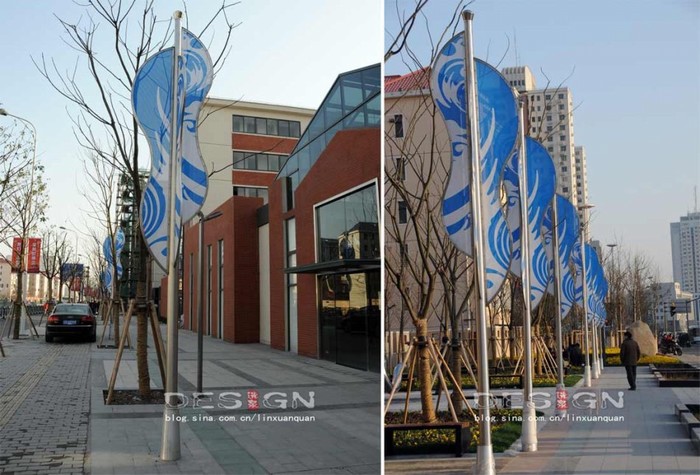
Location:
Extended Section of Expo Axis of Expo 2010 Shanghai—Shangnan Road
Landscape Design: Shanghai Pudong Architectural Design &
Research Institute Co., Ltd, Lin Xuanquan Landscape
Architecture Design & Planning Research Lab
Principal: Lin Xuanquan, Liu Yueqin
Design Team:
Lin Xuanquan, Liu Yueqin, Xu Weichuang, Zhang Chao, Zhang Yanwei
Site Size: 816m2
Design Duration: 2007.9-2009.12
Completion Date: March, 2010
Award: Awarded as No. 1
|
 信息产业部网站备案:沪ICP备13040278号-1
信息产业部网站备案:沪ICP备13040278号-1
 沪公网安备 31011502003788号
沪公网安备 31011502003788号

